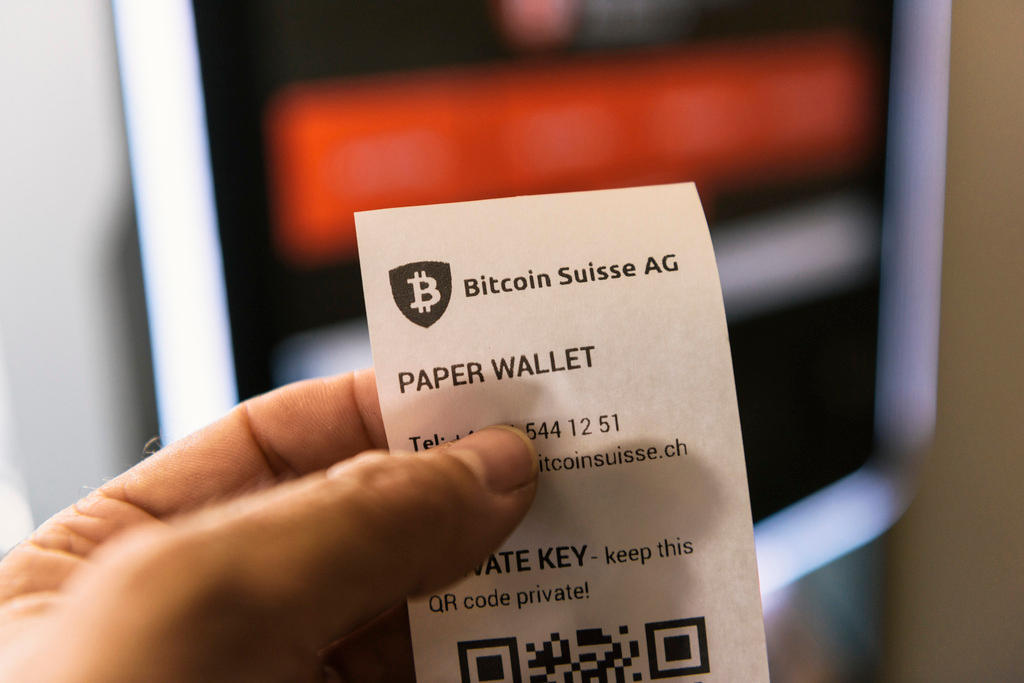
Swiss regulator probes ICOs following fake coin scandal

Ten days after shutting down a fake cryptocurrency scam, the Swiss financial regulator said it is investigating the procedures for setting up new companies in the rapidly expanding sector.
The Swiss Financial Market Supervisory Authority (Finma) issued guidanceExternal link on Friday after noting “a marked increase in initial coin offerings (ICOs)” in Switzerland. ICOs are a form of crowdfunding that allow blockchain start-ups to accumulate capital to develop their nascent technology.
Switzerland, and in particular canton Zug, has become a global hotbed for ICO activity in recent months. Financial services firm PwC found that Switzerland hosts four of the largest ten ICOsExternal link to date, which is more than the United States or China.
Around a quarter of the $2.1 billion (CHF2 billion) raised by ICOs this year is believed to sit in the vaults of Swiss-based foundations.

But the largely unregulated sector has started to attract negative headlines of late. China and South Korea have both slapped bans on further ICOs while the US Securities and Exchange Commission (SEC) has ruled that all tokens issued by ICOs are securities – placing them under strict stock market rules.
The ICO boom has also raised questions in the Swiss parliament by politicians who are concerned that the phenomenon could damage Switzerland’s reputation.
Money laundering rules
Last week, Finma launched bankruptcy proceedings against three companies that had been selling the fake cryptocurrency E-Coin to the public. The regulator said at the time that it was also investigating 11 other suspicious cases.
“Finma cannot rule out that ICO activities may be fraudulent, especially in light of current market developments,” it said in its latest statement on Friday. But a spokesman denied that its latest statement was issued in response to last week’s scams. Instead, the regulator said it always intended to clarify the laws that could affect ICOs for the benefit of start-ups and investors, he said.
Considering the wide array of crypto tokens pouring onto the market, and the different uses they can be put to, Finma believes that any ICO could fall under various existing regulations. Depending on how they operate, such start-ups may be obliged to follow anti-money laundering and terrorist financing provisions, apply for a banking licence or fall under securities trading or collective investment scheme legislation, Finma warned.
However, most ICOs are conceived as a way of raising funds in a manner that fall outside the scope of such cumbersome regulations. Many companies want to develop open source platforms that other firms can later use to provide more efficient financial services.
“Crypto anarchists here to stay”
Thomas Linder of MME Legal, a Zug-based law firm that has advised many ICOs, welcomed the circular. “Finma’s approach has been reasonable rather than aggressive, and they state that they want to be technology neutral [not restrict technological advances with red-tape],” he told swissinfo.ch. “Finma is communicating in a smart way to provide clarity.”
Other actors in the sector, such as David Siegel of cryptocurrency start-up the Pillar Project, are more bullish about the role of regulators in the space.
“Regulators should really keep an open mind about this new technology,” he told swissinfo.ch last month. “They should focus on creating a new framework rather than trying to pack the new model into the old framework and put things back 20 or 30 years.”
“Crypto anarchists are here to stay. If any jurisdiction over-regulates then we can move away and create our currency elsewhere. There are a million ways to get around the rules.”

In compliance with the JTI standards
More: SWI swissinfo.ch certified by the Journalism Trust Initiative































You can find an overview of ongoing debates with our journalists here . Please join us!
If you want to start a conversation about a topic raised in this article or want to report factual errors, email us at english@swissinfo.ch.